As the garden season winds down I'm already busy gathering all the stuff needed to make compost for next year's garden.
Here's a list of some of what I add to the compost pile, egg shells, coffee grinds, loss tea, corn husks and corn cobs, vegetation from the garden, grass clippings, fruit and vegetable peels, and lots of leaves.
Composting is the natural process of recycling organic matter which will leave you with a wealth of BLACK GOLD. Compost contains three primary nutrients: nitrogen, phosphorus, and potassium. It also includes traces of other essential elements like calcium, magnesium, iron, and zinc. Synthetic fertilizers that contain harmful chemicals will no longer be needed to amend your soil. Adding compost to your soil will also increase the soil’s water retention capacity, productivity, and resiliency.
Composting is a great way to recycle the organic waste we generate at home which in turn will reduce the flow of garbage to our ever expanding landfills.
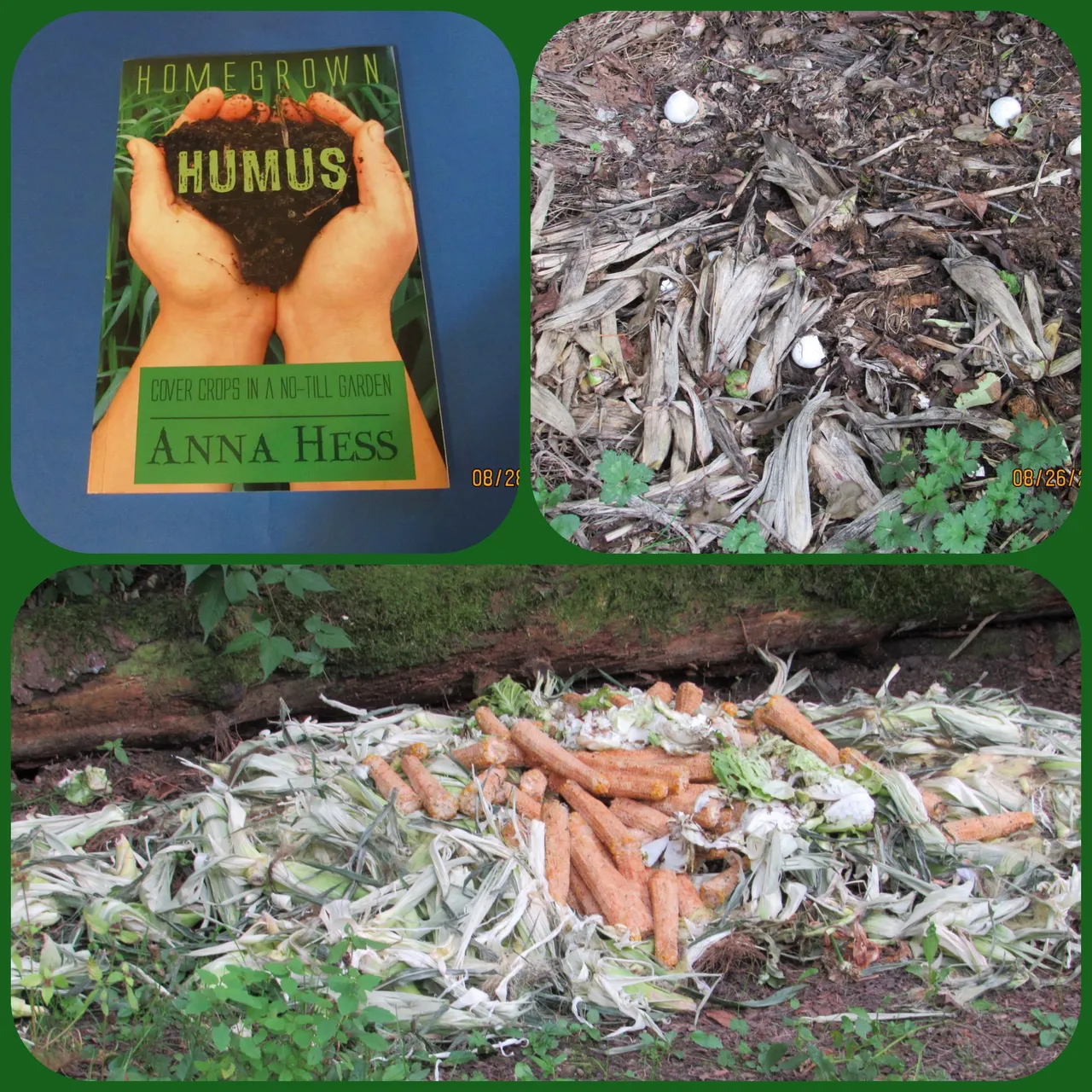
As Autumn approaches and the leaves fall to the earth, collecting this nutrient-rich debris is a simple way to increase the volume of compost you will make.
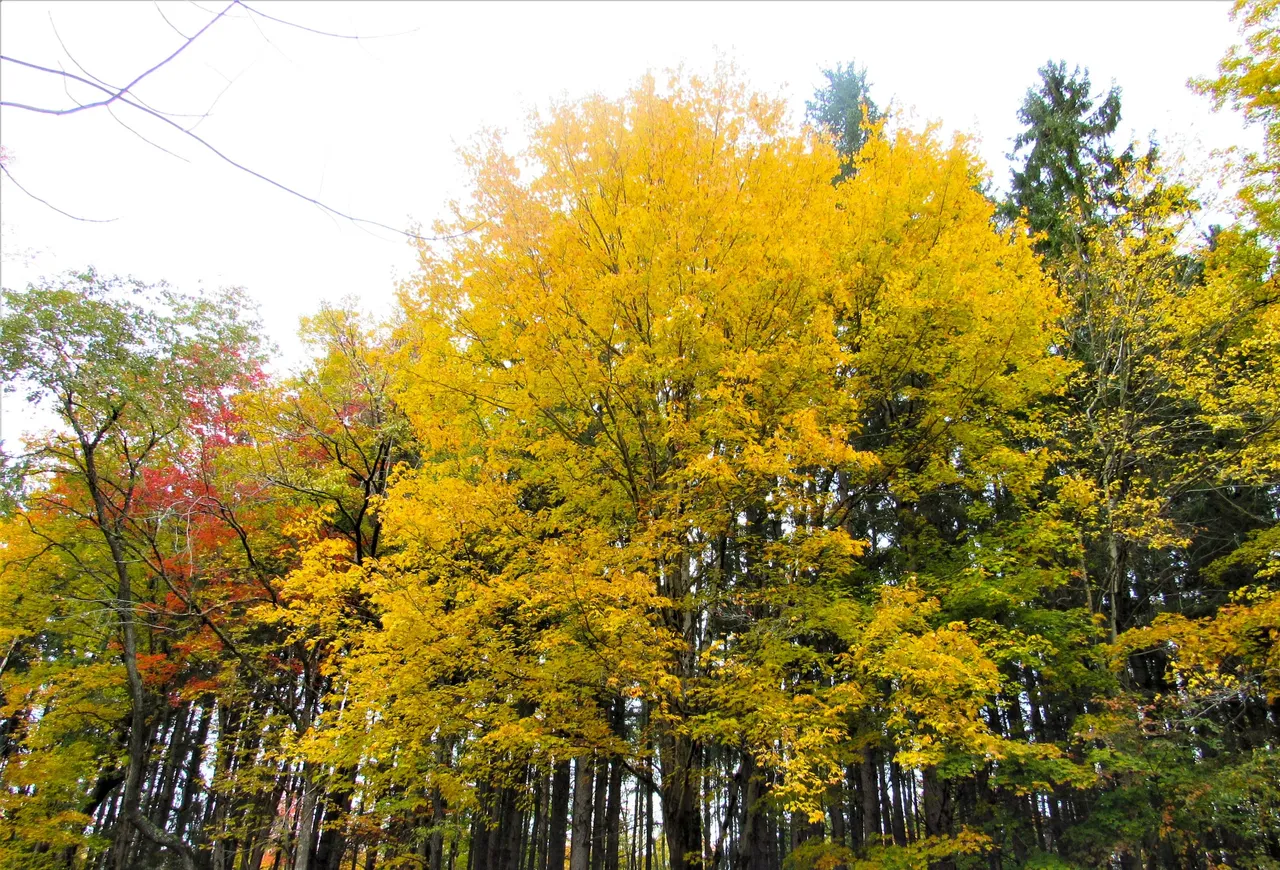
Some of the best leaves to put into your compost pile are Ash, Beech, Maple, and Poplar. Try to avoid Oak as it can be too acidic for a vegetable garden.
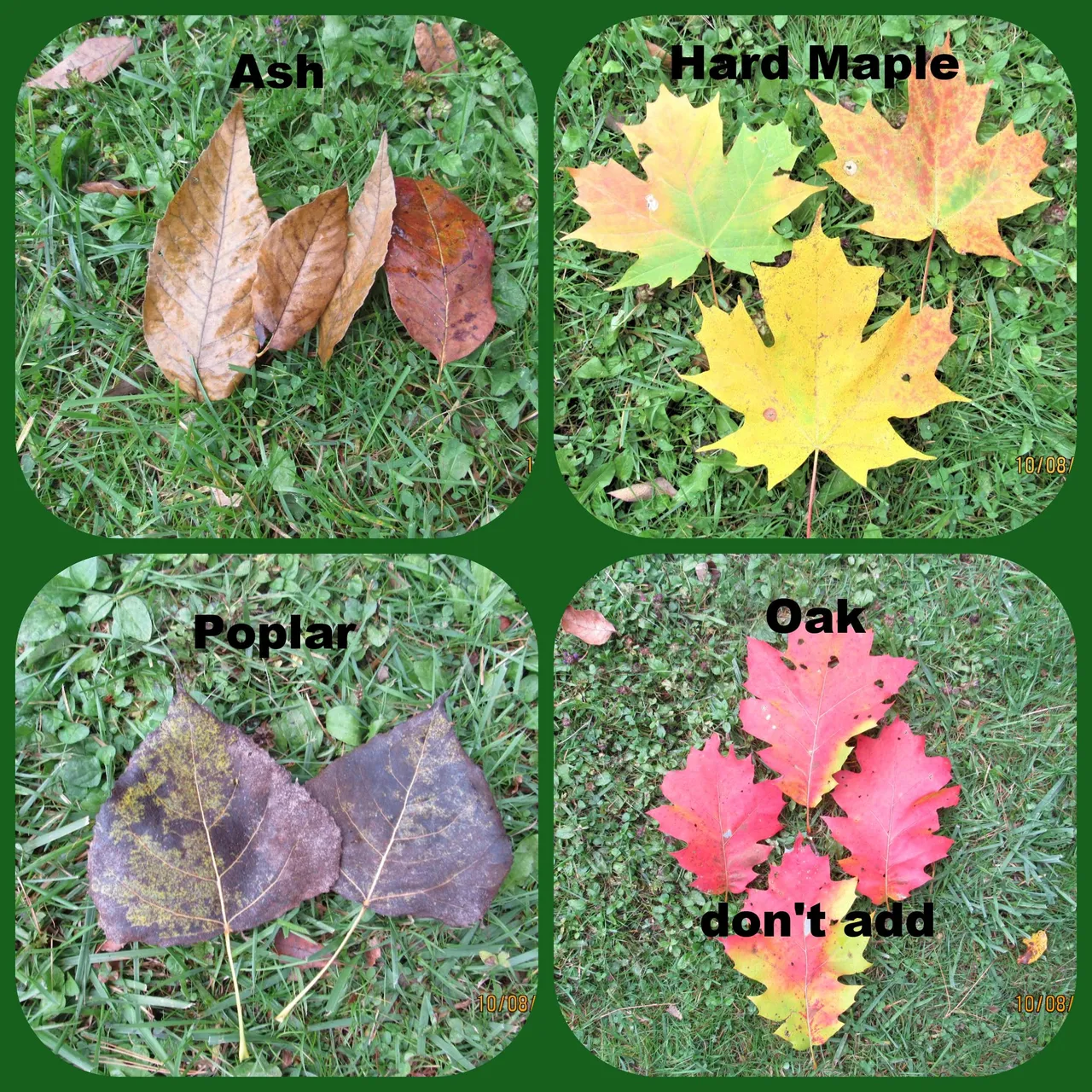
Whole leaves take forever to break down and bind together. Shredding them with your lawnmower will speed up the process and your BLAK GOLD will be ready for next year.
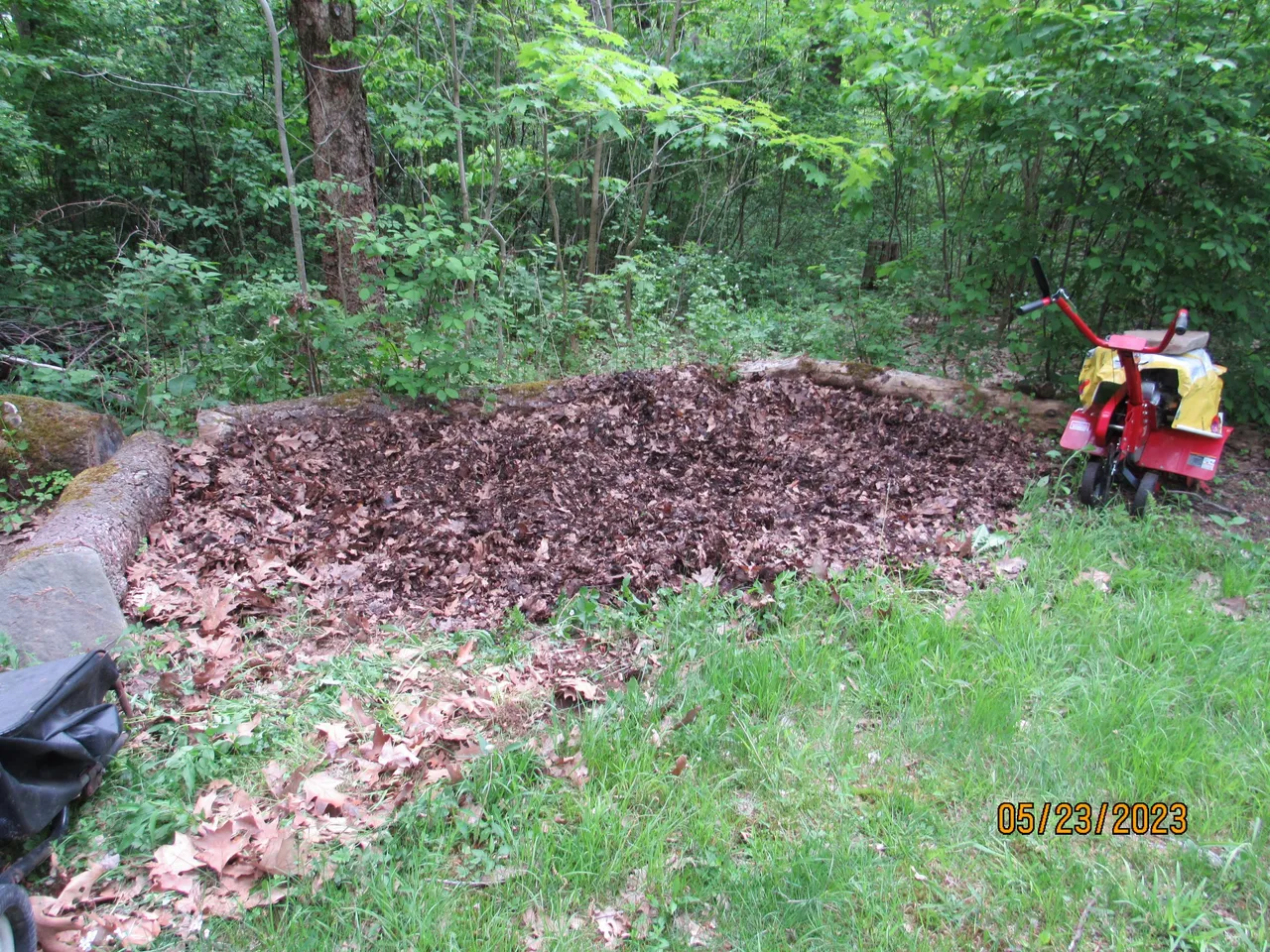
This collage shows you what I composted last year and used in our garden this year.
Over time worms will find their way to the decomposing material and as they eat the organic material what exits their tail end are worm castings. The castings appear as small, dark, clumps that easily break apart.
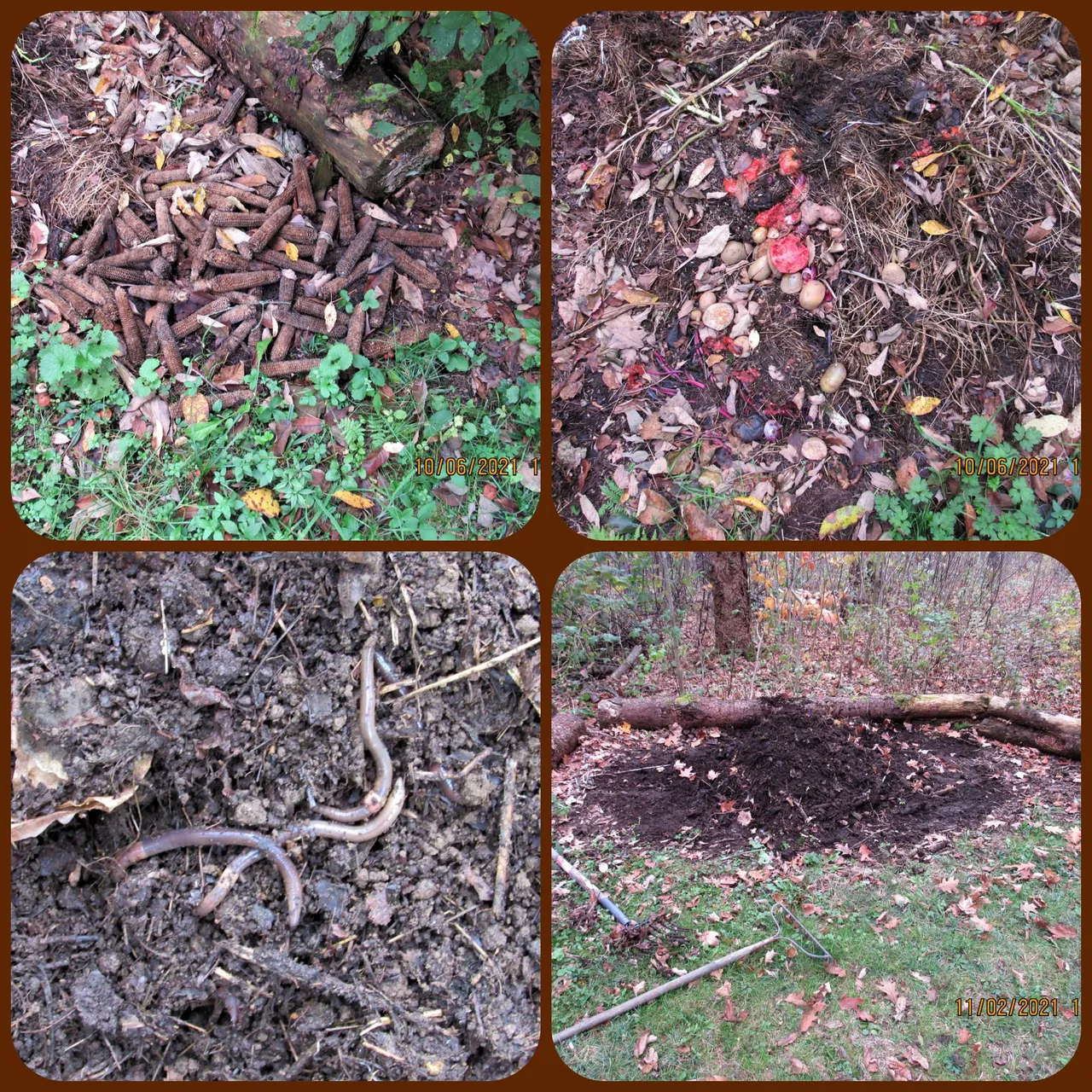
In many of our vegetable gardens, we will mix in a good amount of compost.
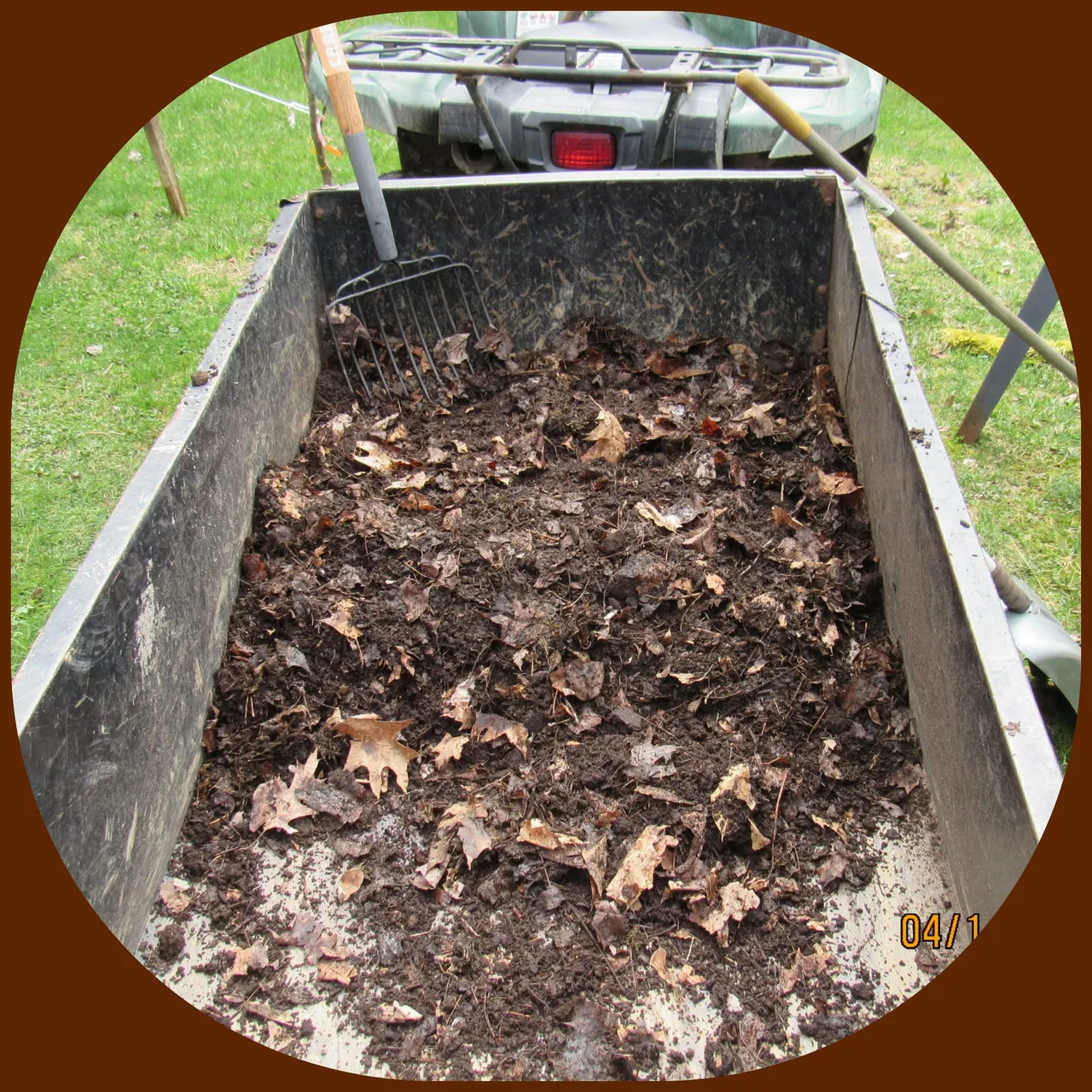
For certain veggies like tomato plants, cabbage, and squash plants the hole the plant will be transferred to will be filled with compost.
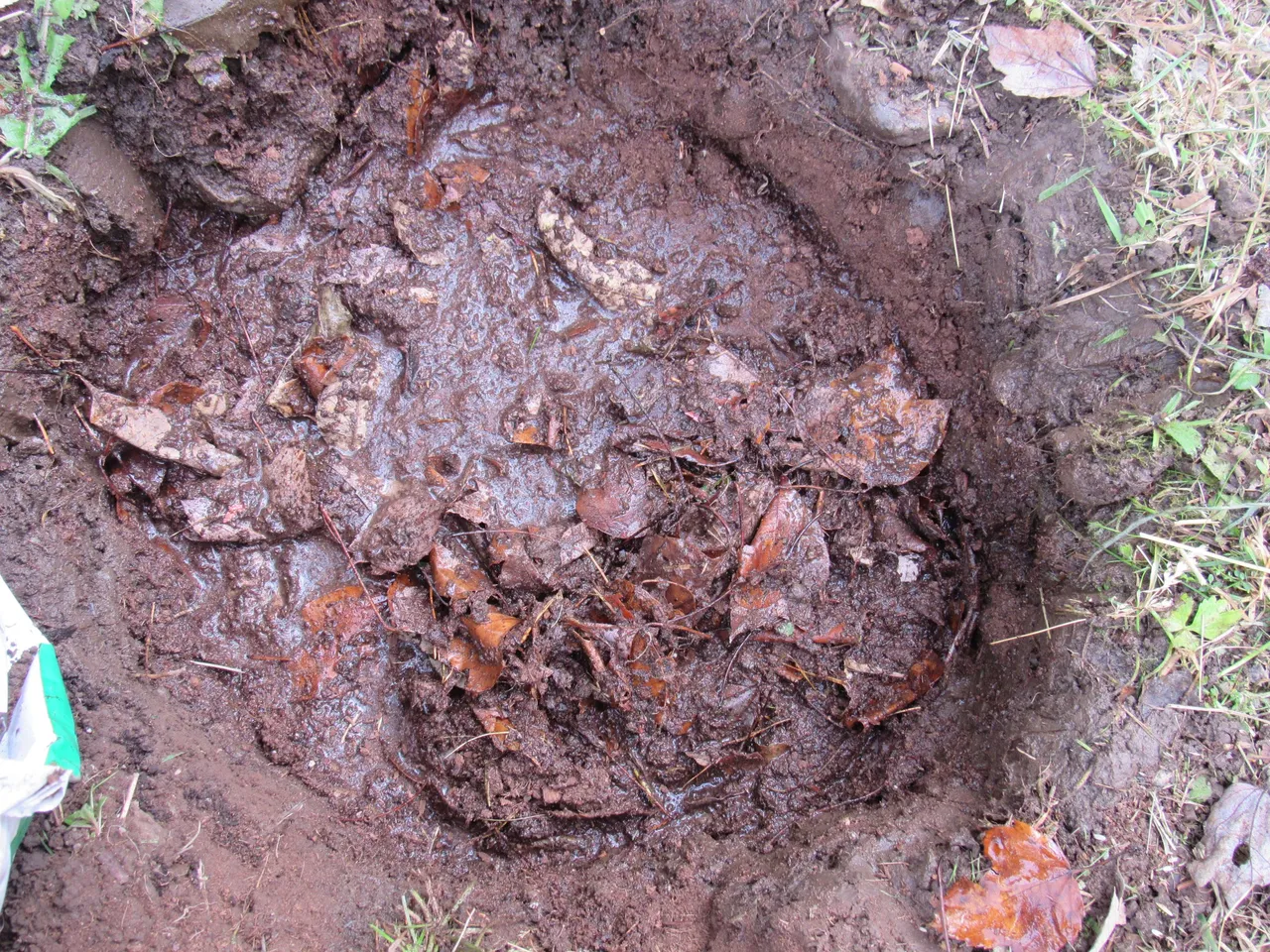
Reduce waste by composting. 28% of what makes it to a landfill is food mater that can be composted.
